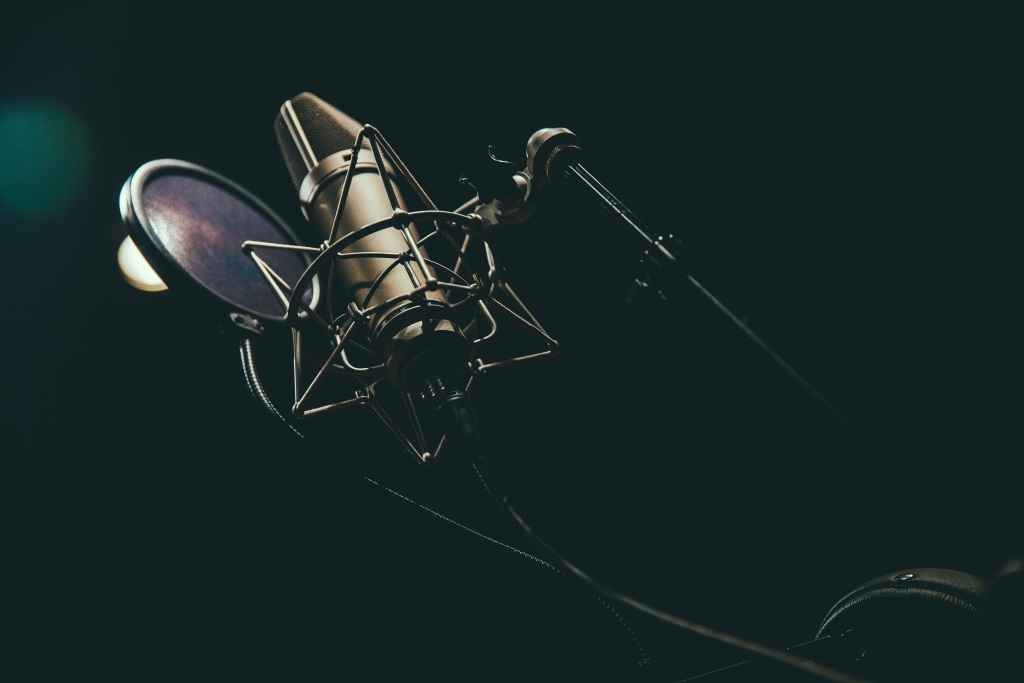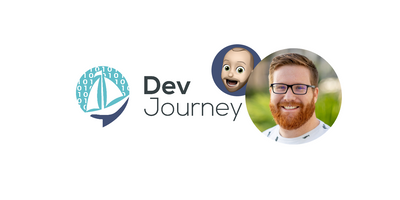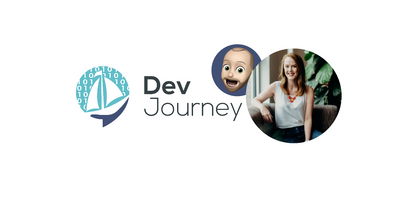How do I prepare a guest for an interview on the DevJourney podcast? How do I make sure they are calm and confident? How do I make sure they know what's coming?
After 150+ episodes, some best practices emerged. It's a lot of communication, but it makes for a great buildup that the guests actually appreciate.
For reference, here were the previous posts about my podcasting workflow:


Now back to my communication buildup:
- Cold call on Twitter + reminder if necessary
- Longer Email + reminder if necessary
- Recording Reminder
- Intro of the interview
- Going live
- Conclusion
1. Cold Call & Reminder
I do a lot of cold-acquisition on Twitter. Whenever I see someone making interesting comments in a discussion, I briefly research them and add them to my potential-guest database. When I finally reach out to them, it's first with the following message:
--
Hi <firstname>,
I am Timothée, the Developer‘s Journey podcast host (http://devjourney.info), and I would love to share your story on the show.
What I am after is simply your unique story: where and when your tech journey started, how you landed your first job(s), <tailor this part>... and all the other things I couldn't read about you online!
If it sounds interesting to you, could you please give me an email address where I can reach you? I would then send you more information about the podcast, its philosophy, and the recording process itself. Then you can decide if and when you want to be in.
I‘m looking forward to hearing from you.
Best,
Tim
--
The message is friendly and relatively short. But most importantly, it is tailored for the guest, showing them why I want to talk to them. It is also already telling them what topics we will most likely cover. Last but not least, there is a clear, actionable item (respond with your email address), as well as a clear reminder that they are not committing to anything yet.
Now and then, a potential guest doesn't respond. I can only speculate why:
- Missing the DM when it lands in the "Request Inbox."
- Too many DMs
- They don't want to be on the show!
Whenever I make a cold call, I add a timestamp in my database. With a quick query in my database, I can see who hasn't responded after a given timeframe (one month). I then send them the following:
--
Hi <firstname>,
I reached out to you a while back. I can imagine you are fairly busy, but I thought I would circle back if you missed my first DM.
I would still love to have you on the DevJourney show. I think your story would resonate very well with our audience.
Looking forward to hearing from you,
Tim
--
This time I use an even shorter message. Most of the guests will react then. But again, the goal is to make them NOT feel bad and show them what I want: to hear their story. And then and I will have the email address I wanted.
I rarely send a second reminder. When I do, it is usually months or years later. And after two reminders, I always give up.
2. Email communication + Reminder
Once I have had a first contact and gotten an email addresse, I send them a (very) long email. By the way, if happened to have an email address from the start, I would still send a short message like the one above. I don't want to drown people with a wall of text if they don't even know what I am talking about.
Back to the long email. The purpose of this email is to provide them with as many answers to the questions they will likely ask themselves without causing a StackOverflow in their brains. The email goes like this.
First, I brush over the origin story. The DevJourney podcasts was born out of an interview nightmare, it's a relatable story for every software developer. We all have been on one side of the interview table or another. The goal here is to highlight clearly the WHY of the podcast:
--
Hi <firstname>, As promised on Twitter, some more info about the podcast.
The origin story: What would you do if you were supposed to hire a bunch of software developers and couldn't find any that convinced you?
In 2014, after interviewing and rejecting 20 candidates, I started questioning my skills, sanity, and expectations. So I decided to interview successful developers. I wanted to know what skills matter to them, what mindset attracts them, and what a successful developer might be. Their answers contained their life stories, and those were amazing. So I decided to record them. Thus, the Software Developer's Journey podcast was born.
--
Then I build up toward the WHAT. I called it the philosophy of the show. The first part is still partially the WHY, but the second paragraph is clearly what I want to hear. The goal here is to understand what I am after and who the intended audience really is:
--
The philosophy: Junior developers are taken by the hand and guided through their first [1;n] steps. Graduating out of _juniordom_ often means finding and making your way. And there, future-ex-junior-developers have to face their "unknown-unknowns." They have to find ways to uncover what they don't know. Here enters the Developer's Journey show.
The vision of the podcast is to highlight the diversity of journeys into _developerdom_. We want to know how you grew into our industry and how you came to be who you are today. We are looking for nothing other than your story and what is important to you: the forks, the bumps, the roadblocks, the challenges, the successes, etc., all those things that made you who you are. By listening to your story, the listeners will grab ideas, patterns, examples, keywords, etc., that they will research later on.
--
Then I briefly give them an overview of how the discussion will go. If a picture is worth 1000 words, nothing trumps listening to an episode to hear how it really sounds. So I give them a mix of four very different episodes that I really enjoyed:
--
The episode starts with a few sentences about you (picked from the Bio you will send us), and from there on, the podcast is a discussion that follows the flow. Listen to a couple of episodes to get a better understanding. I'd recommend:
-How Anne Cahalan quit her job as a nurse, enrolled in a Bootcamp and became a programmer and frequent public speaker
-How Amiti Uttawar became a Bitcoin Core contributor and how the Bitcoin project is lead
-How Alice Goldfuss learned her way to the deeper corners of Github by feeling an imposter
-How Sam Julien went from liberal art major to self-taught programmer, to key DevRel person at Auth0
... or any other of the 150+ stories we collected.
--
Now comes the recording and scheduling. I'm making it clear that it is low friction: in browser and using a tool for easy scheduling:
--
The recording & Scheduling: The recording happens via Zencaster.com, an in-browser solution. The audio is recorded; the video feed isn't. Pick a 90 Minutes recording slot on Calendly (we usually only need ~60 minutes, though). If you don't find any space that suits your schedule, don't hesitate to suggest a few slots that would work for you.
--
Finally, I want people to come prepared to talk about themselves but not ready to recite answers. So I give them the following questions to ponder in advance:
--
Preparation: Here are ten questions to help you reflect on your journey. I will not ask you these questions specifically, so no need to write down the answers. But it might help you to find stories you would like to share!
1. Which stories of your career do you regularly tell and why?
2. Which were the significant forks on your career path, and how did you choose which direction to take?
3. What were your biggest successes and failures, and what did you learn from them?
4. Were there times when you took something in your career for granted?
5. Who were the most influential persons of your life, and what did they do to make this list?
6. What are the craziest situations you had to deal with in your professional career, and what did you learn from them?
7. Did you have goals that were predominant to you but which you no longer consider necessary?
8. What tech-related topics currently excite you? What's keeping you awake these days? And why?
9. Where are you headed in your life and career, and how are you preparing yourself for it?
10. How would you like to be remembered by your colleagues?
--
Before calling it a day, I summarize the actions once more:
--
Your todo list: Here's your todo list:
1. Any questions? Don't hesitate; hit reply!
2. Pick a recording slot on Calendly
3. Send me a short bio
4. Listen to a couple of episodes on devjourney.info
5. Reflect on your journey
6. Finally, sit back & enjoy it!
I'm looking forward to hearing and sharing your story!
Cheers, Tim
--
Last but not least, since it was a cold outreach, I want to make it easy for the potential guests to evaluate who I am and what I do. The best statement for myself is the 150+ guests who already entrusted me their stories, but more links do not hurt:
--
www.devjourney.info
www.timbourguignon.fr
http://www.mentoring.rocks
http://www.seecfp.com
https://twitter.com/timothep
--
3. Recording Reminder
Assuming a guest has booked a recording slot, they will receive an email from me two days before the interview. It will contain the link for the recording, reminding them of the meeting (and thus prevent no-shows) and reminding them to find a quiet spot and a decent microphone.
4. Intro of the interview
Finally, the D-Day comes. Once we are both logged in on Zencastr and we finished breaking the ice, speaking about the weather or our backgrounds, I tell them what is going to happen next:
- First, I'm going to answer all the questions you didn't ask. Since I speak mostly German the whole day, this is also a good exercise to get my english warmed-up. This is also 10 minutes where I evaluate the audio setup of the guest and see if the sound quality will be good enough.
- Then, we'll shoot for 45 minutes recording
- Finally, we'll debrief, and we should be done after 60 to 70 minutes.
Even though we only need 70 minutes, I always schedule for 90 minutes. There is nothing worse than a guest becoming nervous because they have a meeting coming up in a few minutes. And I will always double check the timebox with them during this pre-recording chat.
Then I go through the following checklist:
--
- How do I pronounce your name correctly? Having had my own name, "Bourguignon," butchered in 1000 ways, I make a point of trying to do it right.
- Then I briefly tell the origin story of the podcast again. I formulate it slighly differently with a couple of jokes made to put the guest in a joly but calm frame of mind.
- I Insist on the flow/freestyle approach and thus the little-editing philosophy. But I also tell them to make a short break and redo the full sentence if they want to rephrase something. It makes the editing way easier.
- I encourage them to tell relatable stories. The guests will identify even better with their story then. And I make a point to highlight who the intended audience is.
- If there is a delay between recording and publishing, I tell them to watch out for timely events. It was essential during the Trump-Administration where something crazy was happening every week ; or when I am building a backlog and recording 2 to 3 months in advance.
- Then I give them a precise idea of how the intro will look so that they can relax and know when it is really starting.
- The last question of the show is always "asking for one piece of advice." This is both interesting in itself, but also serves as a hint to tell the guest that we should wrap up. I used to do audio-only interviews, and that was a way to work without visual cues. I also let them know that they will be able to plug their social media handles and links at that time.
- Usually I picked potential sound problems until then. If not, we do some final checks like testing loud exclamations & sound clipping.
- When I hit the recording button, I first always tell the story of how I forgot to record once. For 5 minutes (which felt like an eternity), I knew that something was different than usual, but I couldn't figure out what. I have found that making fun of myself was a good way to help the guests relax before entering the stage.
- Finally, after hitting the record button, I formally ask them to say that they are OK with recording the discussion and publishing it on the show. I'm not sure it will ever be necessary, but you never know. And I prefer this to a fomal release form.
--
And that's it. With this buildup, I know for a fact that the guest feels at ease and well prepared. Many told me after the facts that it was a delightful and well-thought-of process.
5. Going live email
The last email I send my guests is the email telling them that the episode just went live. Again, I tailor the email to the guest, adding some private information that is only related to this show. As a guest, I wouldn't want to receive a completely automated email:
--
Hi <firstname>,
I hope you are doing well since our recording. Your episode went live last night. <insert something custom to the episode>.
You can check it out directly at this URL: <tailored url>
I started pushing it over Twitter and LinkedIn. If you could share it with your audience as well, it would be fantastic: <insert twitter and linkedIn links>.
Also, if you have the chance to leave a review of the podcast on Apple Podcasts (https://apple.co/2DWk5CW), it would be tremendously helpful to help it grow.
Finally, I am also always looking for any feedback about your experience in and around the show. If you do have some pointers, hit reply!
Thanks again for having shared your story with us and helping promote it further! Let's talk again sometimes :D
Cheers, Tim
--
As you can see, straight and to the point, but with a pinch of customization so that they know, I thought of them while writing it.
I have 3 calls to action:
- Share the podcast
- Rate the podcast
- Please give me feedback
6. Conclusion
That was a long post, but that's it. Most of this process is performed manually. But with the use of templates, it is pretty quick to perform. What takes the longest is certainly to research the guests and formulate the first cold-message.
Regardless how much time it takes, it is time well invested. It has proven itself a handy tip to get the guests to schedule with me and feel relaxed when reaching the interview.
Now you're up. Are you doing this differently? How do you do it?
For references, here are two other blog posts I wrote about my setup in 2018 and 2019.
Photo by Volodymyr Hryshchenko on Unsplash



